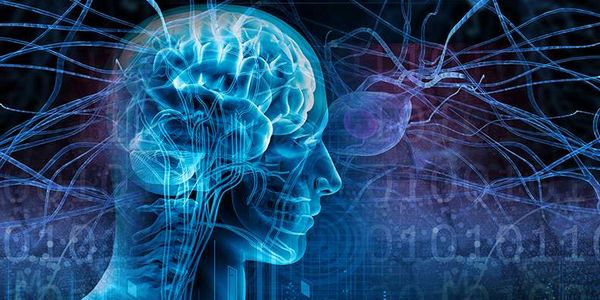The neurotic disorder — what is this disease, the cause of the? Description, symptoms and prevention of the disease neurotic disorder

neurotic disorders (neuroses) - the common name of a group of reversible psychological disorders, which are prone to long-term course, do not lead to a noticeable behavioral disorders, but a significant effect on quality of life.
Neurotic disorder violates not all mechanisms of human mental activity, but only certain of their scope.
Neurotic disorder - Causes
Neurotic disorders are usually caused by a significant and prolonged exposure to irritants, that lead a person to a permanent nervous tension. The most common causes of neurosis - events, which threaten the future of man, cause the position uncertainty or require alternative solutions.
Very rarely the cause of neuroses become sudden traumatic events (death of a loved, accident).
The symptoms of neurotic disorders
The most striking symptoms of neurotic disorders:
- Panic attacks
- Agorafoʙija (fear of open spaces and some other related phobias)
- Ipohondricheskie phobias (intrusive, unfounded fear seriously ill)
- Obsessive thoughts (the constant repetition of undesirable, painful thoughts)
- hysterical reactions
Neurotic disorder - Diagnosis
Diagnosis is often complicated neuroses insufficiency objective manifestations, in which the doctor can accurately determine the presence of disease. When taking the history the doctor considers the patient's complaints, assesses the adequacy of the physical and mental state.
The survey completely excluded organic causes neurotic symptoms (head injury, brain tumor). The neurosis may be burdened by the presence of physical illness.
If the diagnosis of neurotic disorders carries psychologist, for evaluating the patient's condition is carried interviewing the patient via oral questioning and standardized methodologies (BVNK-300, 16-Factor Questionnaire Cattell, the scale of extraversion-introversion, Aaron Beck Depression Scale).
Neurotic disorder - Classification
The following types of neurotic disorders:
- Anxiety neurotic disorder. One of the most common forms of neurosis. Basic psychological manifestations of anxiety and phobic disorders - panic attacks.
- hysterical disorders. This form inclined infantile personality with a high level of suggestibility, lack of independence of judgment, emotional immaturity, impressionability, excitable.
- Neurasthenia. The main complaints: unbearable fatigue, prostration, decrease in vitality, weakness, intolerance to prior conventional load. Patients are very sensitive to external stimuli.
- Neurotic sleep disorder. Most often there is a violation of falling asleep, that provokes aggravation of neuroses.
Also, there are disorders of arousal from sleep. They manifest the, after waking the man for some time can not distinguish dream from reality.
Neurotic disorder - Patient action
When symptoms, characteristic neuroses, the patient needs to see a psychologist or a psychotherapist, psychiatrist.
Treatment of neurotic disorders
In the treatment of the neuroses used methods of psychotherapy and medication. The treatment of neurotic disorders in children necessarily involves psychotherapy parents.
When an excited expression and the presence of intense symptoms prescribe tranquilizers and neuroleptics. Patients with severe depression or suicidal tendencies shown antidepressants. Also used homeopathic (tenoten), symptomatic and bracing means.
Contribute to the healing process physiotherapy. It is recommended that treatment in specialized institutions sanatorium.
Neurotic disorder - Complications
If the neurotic disorders are not treated, they lead to the development of the human personality of the neurotic type. eventually the painful symptoms will intensify. One of the three possible ways of pathological development:
- Man turns into a hysterical personality, which are peculiar to the hypertrophied suspiciousness, emotional logic, stormy theatrical emotions and reactions.
- Conversion to the obsessional personality. Man overly suspicious, constant fear for their lives and health, its understated self-esteem.
- Conversion to the explosive personality. The man does not tolerate objections to his address, aggressive and always focuses on negative emotions. In this case, it becomes a hypochondriac.
All types of neurotic personalities destructive.
Prevention of neurotic disorders
- Primary psychoprophylaxis is to prevent traumatic influences at work and at home; It includes proper upbringing of the child and a healthy relationship in the family; preventing family conflicts.
- secondary psychoprophylaxis (relapse prevention) It based on a change in the attitude of patients to stressful situations; timely treatment; increasing the brightness in the room, restorative and vitamin therapy; dietary management. The patient must give yourself enough sleep, time to treat co-morbidities.
